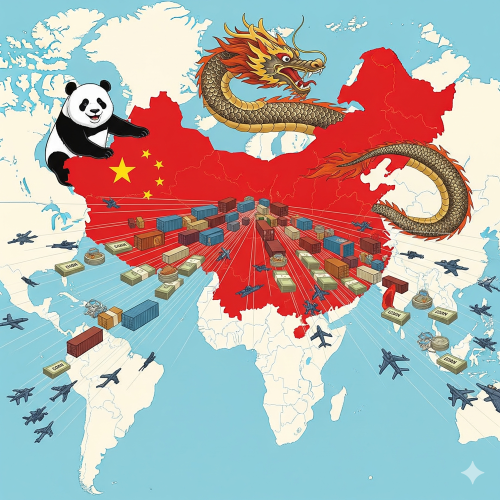How deep is China’s economic influence in Canada through trade in energy, minerals, and agriculture?

China's economic influence in Canada is significant, particularly in the energy, minerals, and agriculture sectors, although it's characterized by a trade imbalance and a growing level of political scrutiny.
China is a major buyer of Canada's raw resources and agricultural products, which provides a strong economic boost, but the relationship is also marked by trade disputes and a lack of market diversification for Canadian exports.
Minerals and Energy: The Raw Resource Link
Canada is a global powerhouse in natural resources, and China's demand for these commodities has been a key driver of the bilateral relationship. China's rapid industrialization and urbanization have created an insatiable need for raw materials, and Canada is a stable, reliable supplier.
-
Minerals: China is a major importer of Canadian minerals, including iron ore and copper. These minerals are essential inputs for China's steel and manufacturing industries. Chinese companies have also made significant investments in Canadian mining, particularly in critical minerals like lithium and cobalt, which are vital for electric vehicle (EV) batteries and other green technologies. This has become a point of contention, leading the Canadian government to increase scrutiny of foreign investments in this sector due to national security concerns.
-
Energy: While China is not a top buyer of Canadian oil and gas, its role as a destination for coal has been important. The trade in energy products is a smaller part of the relationship compared to minerals and agriculture, but it still contributes to Canada's export portfolio. The broader context of energy security means that Canada's vast resources are seen by China as a potential source of future supply, particularly as China seeks to diversify its energy imports away from politically volatile regions.
Agriculture: China as a Top Market
The agricultural sector is where China's economic influence is arguably most direct and visible. China has become a vital market for Canadian agricultural products, which provides a significant economic benefit to Canadian farmers.
-
Key Exports: Canada's agricultural exports to China are dominated by canola seed, which is used for oil and feed. Other major exports include pork, wheat, and barley. This trade has created a clear dependency; for some of these products, a substantial portion of Canada's annual output is sold to the Chinese market.
-
Political Leverage and Trade Disputes: The reliance on the Chinese market makes Canada's agricultural sector vulnerable to political disputes. China has a history of using economic measures to exert political pressure, and this has been evident in the agricultural sector. In 2019, after the arrest of Huawei executive Meng Wanzhou in Canada, China imposed a ban on Canadian canola imports, which had a devastating impact on Canadian farmers. While the ban was later lifted, it served as a stark reminder of China's willingness to weaponize trade to achieve its political objectives. This has forced the Canadian government to consider the need for market diversification.
The Trade Imbalance and Broader Context
While Canada exports a significant amount of raw materials and agricultural products to China, the overall bilateral trade relationship is heavily skewed in China's favor.
-
Merchandise Trade Deficit: Canada runs a substantial merchandise trade deficit with China. This is because Canada's exports are largely raw commodities, while its imports from China are predominantly manufactured goods, including electronics, machinery, and consumer products. This imbalance has led to concerns about job displacement in Canada's manufacturing sector.
-
Investment Scrutiny: The Canadian government has become more cautious about Chinese investments, particularly from state-owned enterprises, in strategic sectors. The Investment Canada Act has been used to block or review some Chinese acquisitions, reflecting a shift in policy that now prioritizes national security and the protection of critical infrastructure and resources. This increased scrutiny is a direct response to the perceived risks of China's growing economic foothold and its potential for political leverage.
- Questions and Answers
- Opinion
- Motivational and Inspiring Story
- Technology
- Live and Let live
- Focus
- Geopolitics
- Military-Arms/Equipment
- الحماية
- Economy
- Beasts of Nations
- Machine Tools-The “Mother Industry”
- Art
- Causes
- Crafts
- Dance
- Drinks
- Film/Movie
- Fitness
- Food
- الألعاب
- Gardening
- Health
- الرئيسية
- Literature
- Music
- Networking
- أخرى
- Party
- Religion
- Shopping
- Sports
- Theater
- Health and Wellness
- News
- Culture

